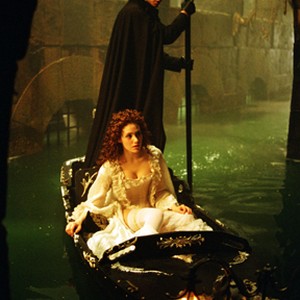

In Paris, at the turn of the century, many were taken into the Opera Populaire, to live in its endless room and vaults. These themes hang in the doorway of this play like the familiar facemasks of comedy and tragedy. The other thread in the play is our age-old struggle between Eros and power, a struggle that reflects our contradictory nature, our growth or our demise. Masks allow us to hidden to be liberated from our subjectivity to play ribald or dangerous parts yet paradoxically, they cover our underlying yearning to be known. One is the theme of the masquerade, the mirror and the mask. And those with a Jungian eye, will recognize in the story, the emergence of the Self in its path of maturation, explored from both the male and female perspective. He notes that oddly enough today most people identify with the Phantom and his profound struggle to redeem his darkened soul from isolation. One of the reasonss for this dramatic interest can be found in an observation made by the films producer, Joel Shumacher. The indisputable evidence of its popularity is its planned enshrinement in Los Vegas as a permanent show.


It has become the biggest selling cast album of all time and seen in eighteen countries by over eighty million people. No longer a simple tale of a monster preying on an innocent young woman, it now strikes a resonance in the modern psyche. There has been a significant translation of the work from that time. Webers Opera is an adaptation of a Gothic love story written by Gaston Leroux, first published in 1911, and set in Paris in 1890. The psychological and spiritual themes in Andrew Lloyd Webers recent film The Phantom of the Opera offer a descent journey into the psyche and lay bare for us the core of the human soul. Now there is symbolism: a young woman caught in the death of her father-daughter projection! The woman slips quietly down the path until she finds the crypt of her father a crypt engraved with the family name ∽aae, (pronounced die). Huge winged angels emerge silently, to be then obscured and replaced by shrouded saints, each frozen testimony to some departed spirit. Mist drifts through the stark black trees, intermittently revealing the snow capped mortuary statues. Reflections on The Phantom of the Operaĭo Jungians get more pleasure from movies than most people? Picture this: on an early winters morning, a cloaked woman moves slowly through a timeless cemetery. Bernice Hill reviews Joel Schumacher's film adaptation of Andrew Lloyd Webber's musical "The Phantom of the Opera" and maps the concentric circles of experience of the wounded child within the wounded man.


 0 kommentar(er)
0 kommentar(er)
